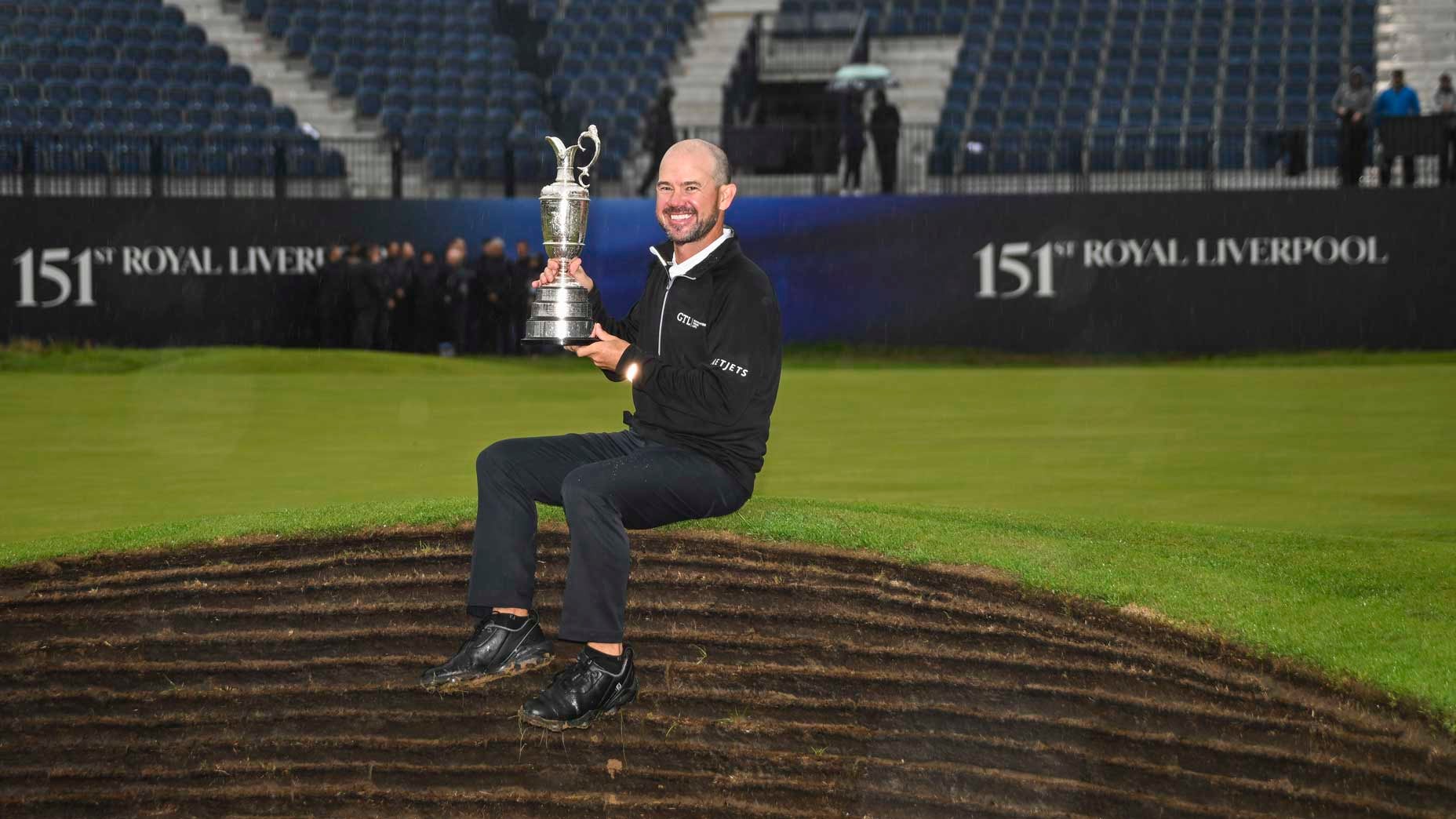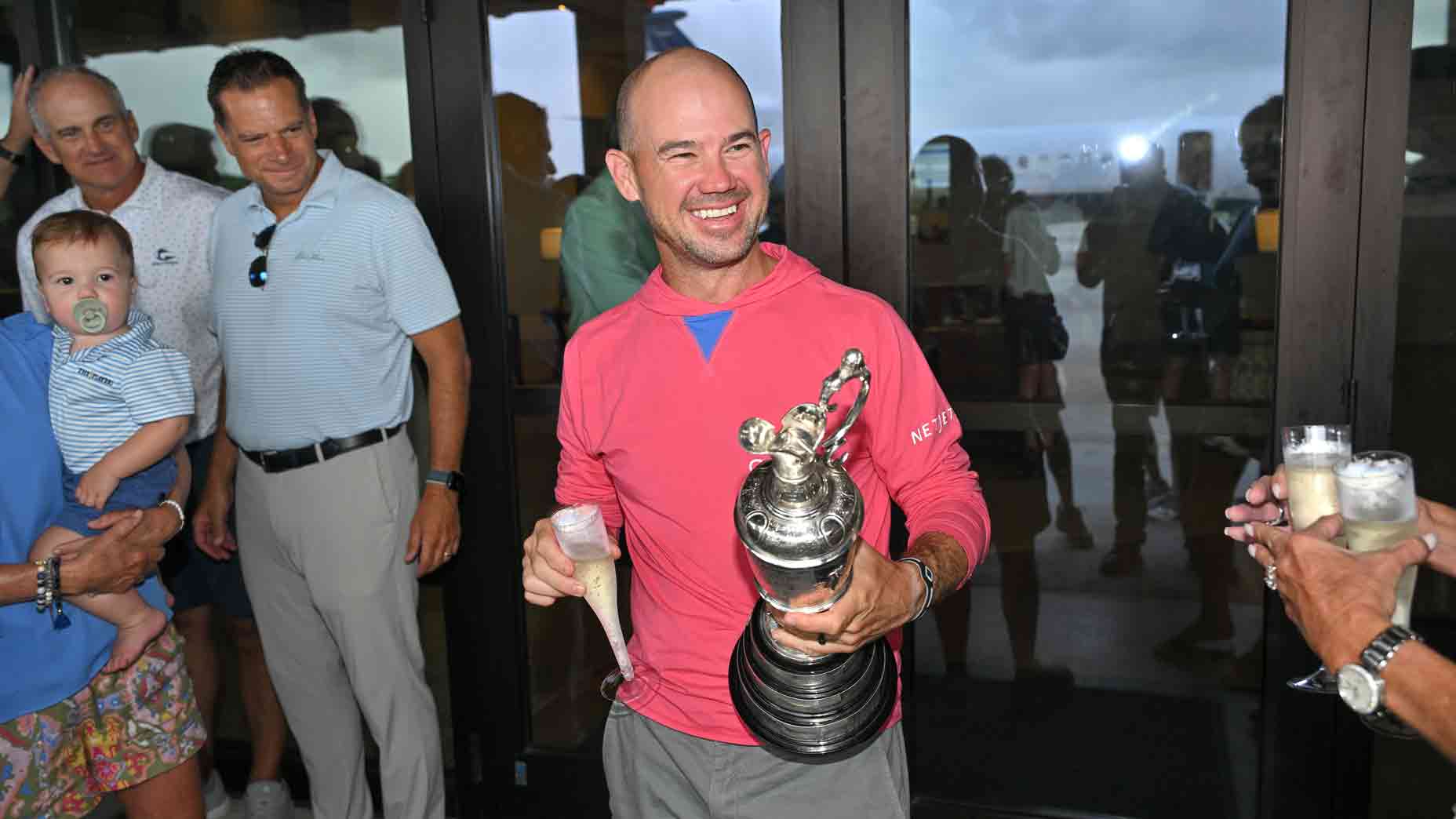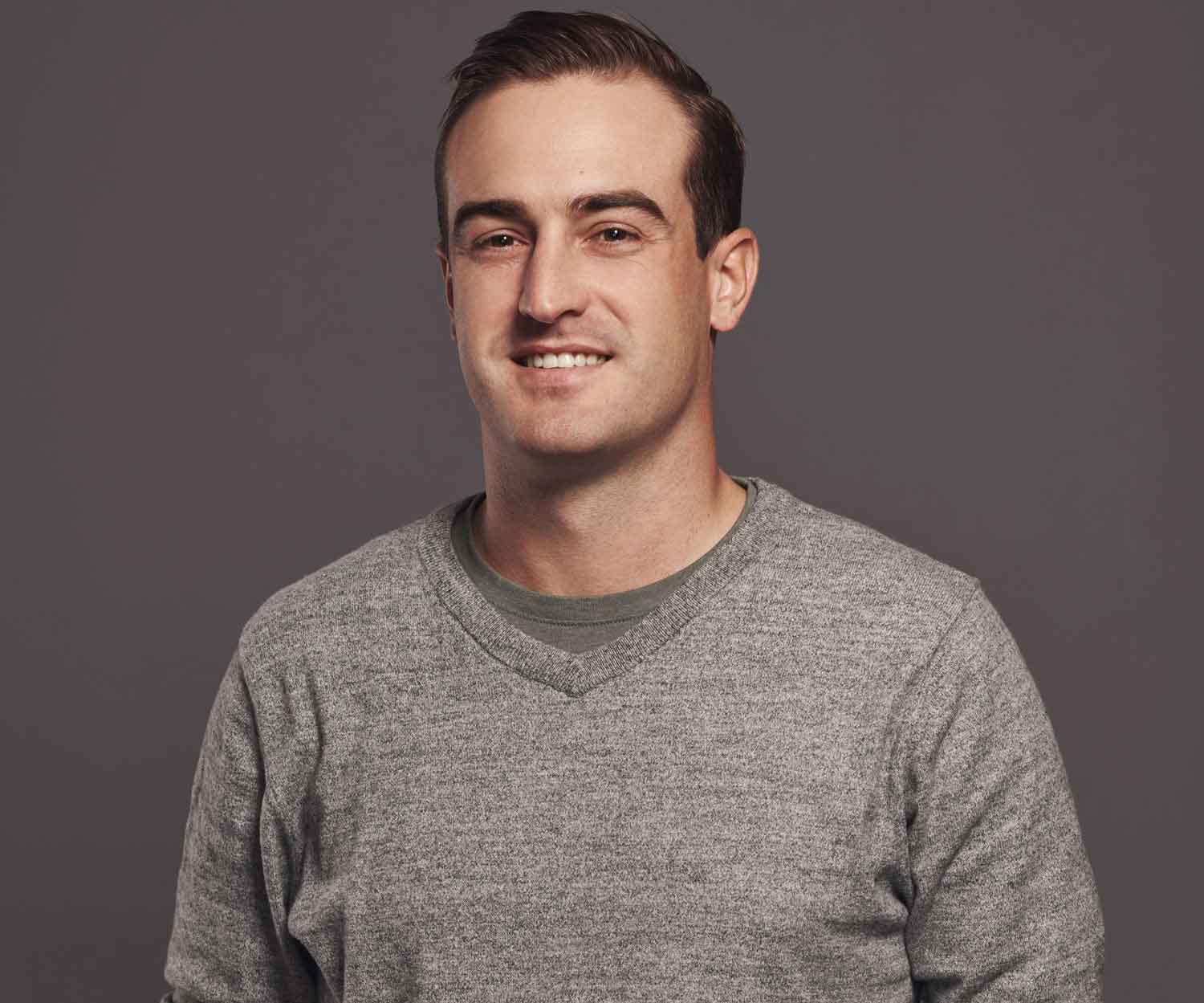
Brian Harman lifts the Claret Jug after winning the Open Championship at Royal Liverpool.
Getty Images
SAINT SIMONS ISLAND, Ga. — Brian Harman’s life isn’t wildly different today than it was before he won the Open Championship earlier this year, but his mindset has changed. That happens to Tour pros, he says. A golfer’s mind is in a constant state of motion.
Harman is picking up his Tour pro credentials this week for the first time since the Ryder Cup six weeks ago, and for the first stroke-play event since the Tour Championship in late August. He expects to be a bit rusty. But the reputation of his game precedes him now, to the point where journalists just assume his victory at Royal Liverpool was life-changing.
Really, there are just more commitments now, Harman says. More favors to do for others. Things like pre-tournament press conferences, the exact forum from which he was speaking. During this presser, Harman was asked about the persistence of Eric Cole, a 35-year-old in the running to become PGA Tour Rookie of the Year, who on his journey has been through plenty of ups, downs and moments of disbelief.
“It’s what we all do, man, and that’s a testament to his grit and determination,” Harman said. He’s been impressed by Cole. “I can appreciate that, for sure. It’s an awesome story, what he’s been able to do to stick with it that long when I’m sure the voices in his head, and he’s probably got a lot of friends like, ‘Hey, man, you sure you still want to compete?’”
Thoughts of quitting tend to arise for pro golfers more than professionals of other sports. Why? Sure, there are weeks where 40-year-old pros topple other golfers in their primes, or when surprising contenders announce themselves to the golf world and beyond, sort of like Harman’s five-shot Open win last summer. Sticking around can pay dividends, but how long can you hang around if none of it is guaranteed? So naturally Harman was asked about his own “voices in his head,” and if he’s ever had the thought of hanging it up during a rough patch?
“Yeah, yeah,” Harman said. “Earlier this year I was asking my agent about announcing jobs already.”
Earlier this year, as in February or March, right? Harman mulled the specific date before a voice from the back of the room reminded him, no, it was actually in June. As in one month before his career changed forever.
“So we all get there, we all have those thoughts,” he said. “Everyone’s in a place that — we operate on these razor thin margins and a couple shots a day and you’re out of the game. I mean, it can happen so quick. And I like operating on that edge. I like it mattering, I like when it means the most, I like where that puts my head as far as like how hard I work.”
Naturally, the thought of Harman pivoting to golf broadcaster piqued the interest of everyone in the media center Tuesday morning at the RSM Classic. It seemed crazy. So crazy we had to ask another Open Champion, Zach Johnson, about it later in the afternoon.
“Can you say that again?” Johnson said, legitimately stunned by Harman’s admission. “Brian Harman?” The question was repeated once more.
This time Johnson put down the microphone and asked again, as if he were being pranked.
“Brian Harman?”
Yes, Brian Harman.
“I know Brian well — very, very, very well,” Johnson said. “We’ve had discussions throughout the years on how to play this game, how to tackle this game, we approach things very similar. That’s why I’m surprised by this. Maybe he was being honest or somewhat sarcastic, I have no idea, that’s not the point. I’m just shocked by that statement because he is so good. I mean, obviously we’re saying it because he had a great summer, but even before that. I almost want to model my game after him now, that’s really what I’m getting at because he’s really so efficient at what he does. Wow, I’m surprised by that statement.”
That’s a fair response. And to Johnson’s credit, Harman’s efforts to kickstart a broadcasting career were short-lived, even if they were real. According to Harman, his agent quickly told him “exactly what I needed to hear: ‘No, we’re not doing that yet, Brian.’”
And yet, the thought was there. Because the margins at the top level of pro golf are so tight. Players who are ranked, say, 60th in the world, are capable of peaking for a single month. Just like Harman did. But right before that, they might have felt like they’d never peak again.
“You work your ass off to get to like whatever like a mini little peak is,” Harman said, raising a hand in the air. “And then something — you stop doing the things that got you there and so you start this kind of downhill thing and then it just snowballs and then it’s rock bottom. All right, I guess I’m going to go do something else.”
That’s where Harman felt he was earlier this year, at 36, a two-time Tour winner who had two top 10s in 29 major appearances. Wondering what life would be like as a golf broadcaster. Harman didn’t detail how he suddenly got himself into career form, only offering that some of his best golf has come after hitting a theoretical rock bottom.
“It’s like, no, I’m not going to do that,” he said. “Then you start working hard again and you start working your way up to the top again.
“It’s always — it’s in constant motion. It’s kind of like you’re either getting better or you’re getting worse and your mindset in the way that you approach everything is sort of what determines what part of that projection you’re on.”









